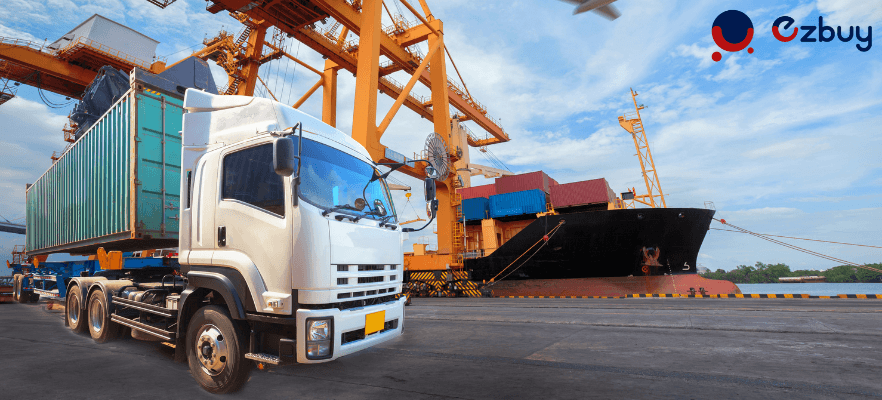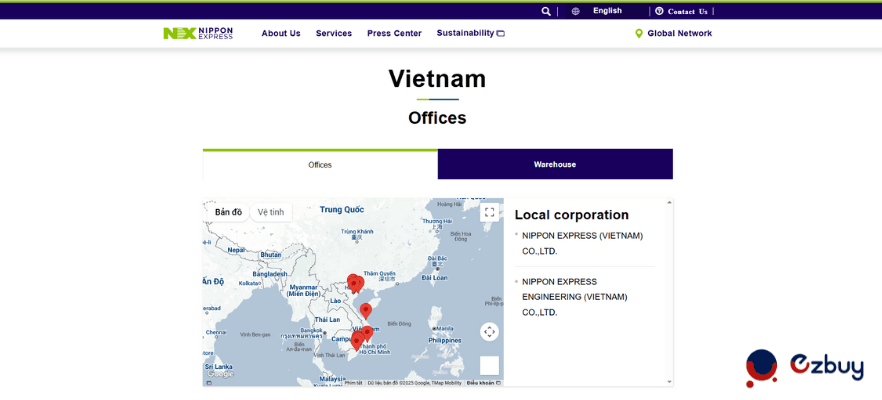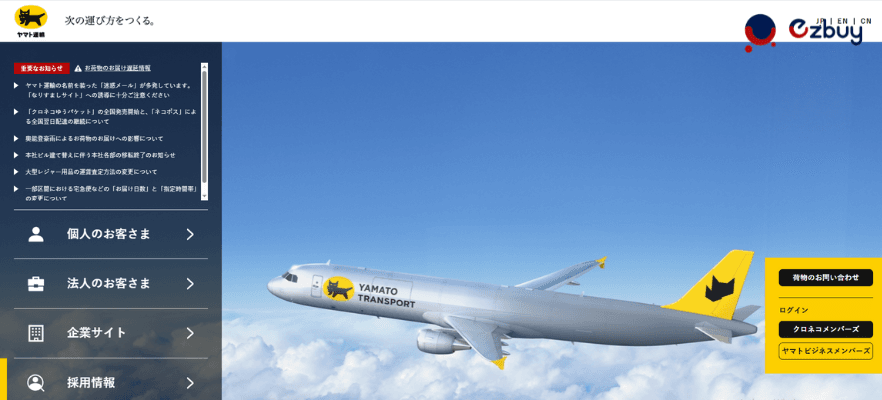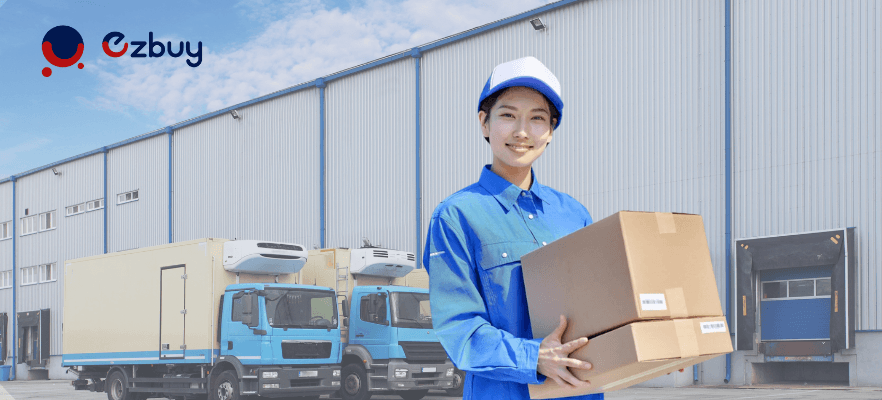Logistics Companies in Japan – Your Guide to Top Providers in 2025
By Macy -11/04/2025 UTC.
Imagine ordering something online in Japan and having it arrive at your doorstep within hours—that’s how fast and efficient Logistics companies in Japan are. As the backbone of Japan’s $5 trillion economy (World Bank, 2023), logistics companies ensure that everything, from daily online shopping orders to critical manufacturing components, moves seamlessly across the country and beyond.
These companies are the unsung heroes behind Japan’s booming e-commerce, providing fast and reliable last-mile delivery to meet the growing demand for same-day and next-day shipping. In manufacturing, especially in the automotive and electronics sectors, they power Just-in-Time (JIT) production, ensuring factories receive parts exactly when needed to minimize waste and costs. And on a global scale, Japan’s logistics giants keep international trade flowing smoothly, handling everything from customs clearance to freight forwarding.
With the logistics industry evolving rapidly in 2025, this guide will walk you through the top logistics providers in Japan, helping you find the best partners for e-commerce, manufacturing, and global shipping needs. Let’s dive in!
1. Overview of the Logistics Industry in Japan

Before showing the top-rated Japan logistics company, you should first oversee the remarkable situation of the country’s logistics industry, which lays the foundation for the reputed logistics service there.
Japan's logistics industry is a cornerstone of its economy, renowned for its efficiency and innovation. In 2025, the market size is projected to reach approximately ¥24.85 trillion.
This growth is driven by technological advancements and infrastructure modernization aimed at overcoming operational challenges.
1.1. Technological Innovations and Sustainability Efforts
- Automation and Robotics: Japanese warehouses are increasingly adopting automation and robotics to enhance efficiency and reduce labor dependency.
- IoT and Real-Time Tracking: The integration of IoT devices enables real-time tracking of shipments, improving transparency and customer satisfaction.
- Sustainability Initiatives: To address environmental concerns, Japan is developing an automated cargo transport corridor, dubbed the "conveyor belt road," between Tokyo and Osaka.
1.2. Challenges and Regulatory Changes
The industry faces challenges such as rising fuel prices, a shortage of truck drivers, and escalating operational costs. Implementing new overtime regulations for truck drivers in 2024, limiting annual overtime to 960 hours, has prompted the industry to reassess its practices to maintain efficiency.
In response to these challenges, Japanese logistics companies are investing in technological solutions and process improvements to enhance productivity and ensure the sustainability of the logistics sector.
Through continuous innovation and adaptation, Japan's logistics industry maintains its pivotal role in supporting the nation's economy and meeting the evolving demands of global supply chains.
2. Why Choose Logistics Companies in Japan?
Japan logistics companies stand out globally, offering a blend of advanced infrastructure, exceptional reliability, cross-border expertise, and specialization in handling high-value goods. Here's why partnering with Japanese logistics companies is a strategic choice:
Advanced Infrastructure:
- Extensive Rail Network: Japan's rail system spans approximately 8,166.8 km, with high-speed freight trains operating at speeds of 85 km/h or higher, ensuring swift and efficient cargo movement.
- Comprehensive Port Facilities: With over 120 ports, Japan facilitates seamless domestic and international maritime logistics, supporting a robust supply chain network.
Reliability:
- Timely Deliveries: Japan Post's domestic services are renowned for their punctuality, with most packages delivered within 1-2 days, reflecting the industry's commitment to efficiency.
Expertise in Cross-Border Logistics:
- Global Reach: Logistics company in Japan maintains a vast international network, connecting to over 220 countries via air and sea, ensuring smooth cross-border operations.
Specialization:
- Handling High-Value Goods: Many Japanese logistics companies excel in managing sensitive and high-value items, such as electronics and pharmaceuticals, adhering to stringent safety and quality standards.
By leveraging these strengths, logistics companies in Japan provide unparalleled services that cater to diverse business needs, reinforcing their position as leaders in the global logistics landscape.
3. Types of Logistics Companies in Japan
Japan's logistics industry is diverse, encompassing various specialized sectors that cater to different aspects of supply chain management. Thus, having extensive knowledge of the various logistics company models in Japan enables you to make an informed choice for your business needs. Here comes an overview of the primary types of logistics companies operating in Japan:
3.1. Third-Party Logistics (3PL) Providers
These companies offer comprehensive logistics services, allowing businesses to outsource functions such as warehousing, transportation, and distribution. By leveraging 3PL providers, companies can focus on their core competencies while ensuring efficient supply chain operations.
3.2. Freight Forwarders
Specializing in organizing shipments for individuals or corporations, freight forwarders in Japan coordinate the movement of goods from manufacturers to market or final points of distribution. They handle the intricate logistics of international shipping, including customs documentation and regulatory compliance, ensuring timely and secure delivery.
3.3. E-commerce Logistics Providers
With the rapid growth of online retail, e-commerce logistics providers have become crucial in managing order fulfillment, inventory management, and last-mile delivery. These Japanese logistics companies ensure that products reach consumers promptly and efficiently, enhancing the overall customer experience.
3.4. Specialized Logistics Companies
These firms focus on transporting goods that require specific handling, such as perishable items, hazardous materials, or oversized cargo. They adhere to stringent regulations and utilize specialized equipment to maintain the integrity and safety of these sensitive shipments.
By understanding the distinct roles of these logistics companies, businesses can select partners that align with their specific needs, ensuring a streamlined and effective supply chain.
>>> Read more: Ecommerce Logistics in Japan - Navigating Fulfillment and Cross-Border Shipping Solutions
4. Top 5 Logistics Companies in Japan
Among various options out there, you must need a thoughtful suggestion on the best Logistics Companies in Japan. Japan's logistics industry is home to several prominent companies that have established themselves as leaders in the field. Here are five top logistics companies in Japan:
4.1. Nippon Express

Nippon Express is a Japanese logistics company established in 1937. The company specializes in providing comprehensive transportation solutions worldwide. Currently, Nippon Express has approximately 73,482 employees at over 730 international locations, offering a range of services across 49 countries.
Nippon Express is a renowned provider of logistics services, offering air, sea, and rail freight services. The company enables businesses to conduct international shipments and provides global supply chain management solutions. Additionally, it offers specialized services including the transportation of artworks, heavy items, warehousing solutions, and distribution services.
4.2. Yamato Transport

Yamato, established in 1919 in Tokyo, is one of Japan’s leading logistics companies. The company owns one of the largest operational networks in the country, with 12 regional offices, 89 branches, 4 ports, 6,877 centers, 24 express delivery branches, and 345 company sales branches worldwide. Currently, the total number of employees is approximately 180,000, handling an average of 1.8 billion packages annually.
Yamato Transport offers a variety of solutions for businesses in Japan, including standard and express delivery services, distribution, consolidation, and air freight services. Businesses in Japan using Yamato's services can deliver products to customers in over 23 countries worldwide. Notably, the company provides specialized services for artworks to ensure the safe and secure movement of these items.
4.3. Kintetsu World Express (KWE)

Kintetsu World Express is a Japanese logistics company established in 1970, with its origins dating back to 1948 when Kintetsu Railway began offering international freight and travel services. The company specializes in providing comprehensive transportation solutions worldwide. Currently, Kintetsu World Express has approximately 18,619 employees globally, with nearly 700 offices in over 300 cities worldwide, operating in more than 32 countries outside Japan.
Kintetsu World Express is a renowned provider of air and sea freight services, as well as customs brokerage, warehousing, and distribution services. The company enables businesses to conduct international shipments and provides global supply chain management solutions. Additionally, it offers specialized services including the transportation of special cargo and warehousing solutions, supporting industries such as automotive, electronics, pharmaceuticals, and retail.
4.4. Sagawa Express

Sagawa is one of the largest logistics service providers in Japan, founded in 1957 in Kyoto. The company has over 57,000 employees and operates a fleet of 26,000 delivery vehicles worldwide, handling both domestic and international shipments.
The company offers a range of logistics services, including transportation, express delivery, mail courier, last-mile delivery, and air freight solutions. Additionally, Sagawa provides third-party logistics (3PL) services such as warehousing, inventory management, and packaging solutions. All partner businesses can fully track and manage their shipments throughout the entire service process with Sagawa.
4.5. Ezbuy Japan
Ezbuy Japan is a full-service Logistics company in Japan tailored for both local and international sellers targeting the Japanese market. Unlike traditional shipping providers, Ezbuy offers a comprehensive solution—from product sourcing and warehousing to last-mile delivery and international shipping.

What makes Ezbuy stand out:
- Domestic warehouses across Japan for faster, more efficient 2-day delivery
- Seamless integration with marketplaces like Mercari, Amazon, and Rakuten
- Built-in product crawler for sourcing and automated listing
- Automated inventory management with multi-channel control (OMS)
- Returns handling, refurbishment, and quality control services
- Customized packaging, labeling, and barcoding
- Secure, climate-controlled storage with scalable capacity
Whether you're a global brand or an individual seller, Ezbuy combines fulfillment, tech integration, and local expertise into one powerful solution.
5. Factors to Consider When Choosing a Logistics Company in Japan
Among numerous choices of services out there, setting clear criteria to consider the most suited one for your company’s needs is paramount important. Each company has its pros and cons, making it quite hard to pick the best one for your demand.
To ensure you make an informed choice, consider the following comprehensive factors:
- Cost:
Understanding the cost structure of logistics services is crucial for maintaining profitability. In Japan, domestic shipping costs can vary based on factors such as package size, weight, and delivery speed. International shipping costs are influenced by destination, package dimensions, weight, and chosen delivery speed. It's advisable to obtain detailed quotes from various logistics companies to assess the best fit for your budget. Additionally, be aware of potential hidden fees, such as fuel surcharges or handling charges, which can affect the overall cost.
- Speed:
The speed and reliability of deliveries are critical to customer satisfaction and operational efficiency. In Japan, consumers expect prompt delivery services. For domestic deliveries, many logistics providers offer 24- to 48-hour delivery options to meet these expectations. International shipments may take between 5 to 14 days, depending on the destination and service type. When choosing a logistics partner, consider their track record for on-time deliveries and their ability to meet your specific timelines. Reliable delivery services can enhance your reputation and customer loyalty.
- Specialization:
Different industries have unique logistics requirements. Selecting a logistics partner experienced in your specific industry can ensure they understand and can meet these unique needs. For example, if you're in the food industry, a company proficient in cold chain logistics is essential to maintain product integrity during transportation. Similarly, industries dealing with hazardous materials require logistics providers with specialized handling capabilities and certifications. Partnering with a company that specializes in your industry can lead to more efficient and compliant operations.
- Technology:
In today's digital age, technological capabilities are a significant factor in logistics operations. Modern logistics companies should offer real-time tracking systems, allowing you and your customers to monitor shipments throughout the delivery process. This transparency can enhance customer satisfaction and trust. Additionally, advanced Warehouse Management Systems (WMS) can enhance inventory accuracy and streamline operations. Partnering with a logistics provider that utilizes such technology can improve overall efficiency and reduce errors. Assess the technological infrastructure of potential logistics partners to ensure they can meet your operational needs.
- Customer Support:
Effective customer support is vital for resolving issues promptly and maintaining smooth operations. For businesses engaging in international trade, it's beneficial to choose a logistics company that offers multilingual customer support. This ensures clear communication and swift resolution of any issues that may arise. Additionally, consider the availability of customer support—24/7 support can be crucial for addressing urgent matters. Evaluate the responsiveness and accessibility of a logistics provider's customer service to ensure they can support your business effectively. By meticulously assessing these factors, you can identify a logistics partner in Japan that not only meets your operational requirements but also contributes to the seamless flow of your supply chain.
6. Trends Shaping Logistics Companies in Japan in 2025
Japan's logistics industry is experiencing major shifts in 2025, driven by emerging trends that are reshaping the sector. To stay competitive, businesses must adopt a strategic logistics plan that aligns with these rapid advancements. Stay attentive
- Technological Advancements
The integration of robotics and automation is revolutionizing warehousing and handling processes, leading to increased efficiency and reduced labor costs. This can be illustrated by the use of Ecommerce Management Software to optimize the trading process. Nippon Express is integrating advanced technologies, such as the Internet of Things (IoT), into its logistics operations to improve inventory management and operational efficiency.
- Sustainable Practices

In 2025, logistics companies in Japan are prioritizing sustainability through green warehousing, electric and hydrogen-powered vehicles, AI-driven route optimization, and circular logistics. Businesses are investing in renewable energy, eco-friendly packaging, and carbon offset initiatives to reduce environmental impact. AI and IoT technologies enhance efficiency by optimizing delivery routes and tracking emissions, while shared transportation networks minimize fuel consumption. Government incentives and corporate commitments further drive the transition to sustainable operations, ensuring that logistics growth aligns with Japan’s environmental goals. Yamato Holdings is actively adopting eco-friendly logistics solutions, including energy-efficient transportation methods and sustainable packaging, aligning with global environmental goals.
- Delivery Speed and Reliability
The speed and reliability of deliveries are critical to customer satisfaction and operational efficiency. In Japan, consumers expect prompt delivery services. For domestic deliveries, many logistics providers offer 24- to 48-hour delivery options to meet these expectations. International shipments may take between 5 to 14 days, depending on the destination and service type. When choosing a logistics partner, consider their track record for on-time deliveries and their ability to meet your specific timelines. Reliable delivery services can enhance your reputation and customer loyalty.
- Demand for home deliveries & labor shortages
While there is a growing demand for home deliveries, Japanese logistics companies are facing significant labor shortages, particularly among truck drivers. To mitigate this, the industry is exploring automated cargo transport systems, such as the proposed "conveyor belt road" between Tokyo and Osaka, aiming to enhance efficiency and reduce reliance on human drivers.
- Pharmaceutical Logistics Expansion
The third-party logistics (3PL) pharmaceutical sector is experiencing robust growth, with a focus on specialized cold chain logistics to meet the stringent requirements of temperature-sensitive medications. Leading companies like Yusen Logistics and Nippon Express are expanding their services to include specialized cold chain logistics, ensuring the safe and efficient transportation of temperature-sensitive medications. These trends are collectively reshaping Japan's logistics landscape, positioning it to meet future challenges and opportunities.
- Market Growth
The logistics market in Japan is projected to grow at a compound annual growth rate (CAGR) of 5.6% from 2025 to 2033, driven by increased demand for efficient supply chain solutions and technological innovations. Sagawa Express is contributing to the projected growth of Japan's logistics market, which is expected to reach USD 437 billion by 2031, by expanding its services and adopting technological innovations.
>>> Read more: Fulfillment in Japan – Optimizing Ecommerce Logistics with Ezbuy Japan
7. Conclusion
The comprehensive guide above on selecting top logistics companies in Japan is exactly what sellers need in today's highly competitive market. Before making a decision, businesses should remember to evaluate key factors such as cost, speed, specialization, technology, and customer support to fit with their business need. Sellers should also pay attention to the logistics trend in 2025 to stay ahead of the competition and ensure seamless operations. From the rise of automation and AI-driven logistics to the growing emphasis on sustainability, staying informed about emerging trends will help businesses optimize their supply chain strategies and improve customer satisfaction.
In a world where speed, precision, and sustainability define success, Japan’s logistics industry stands as a masterclass in seamless connectivity. For businesses looking to scale, adapt, and thrive, partnering with Japan’s logistics giants is not just a choice—it’s a strategic advantage. Hopefully, the guide above helps you to easily navigate the complexities of logistics selection and make informed decisions that drive long-term success. Stay ahead of the curve and turn logistics into your competitive edge in 2025!
Website: https://ezbuy.jp/en
Email: [email protected]